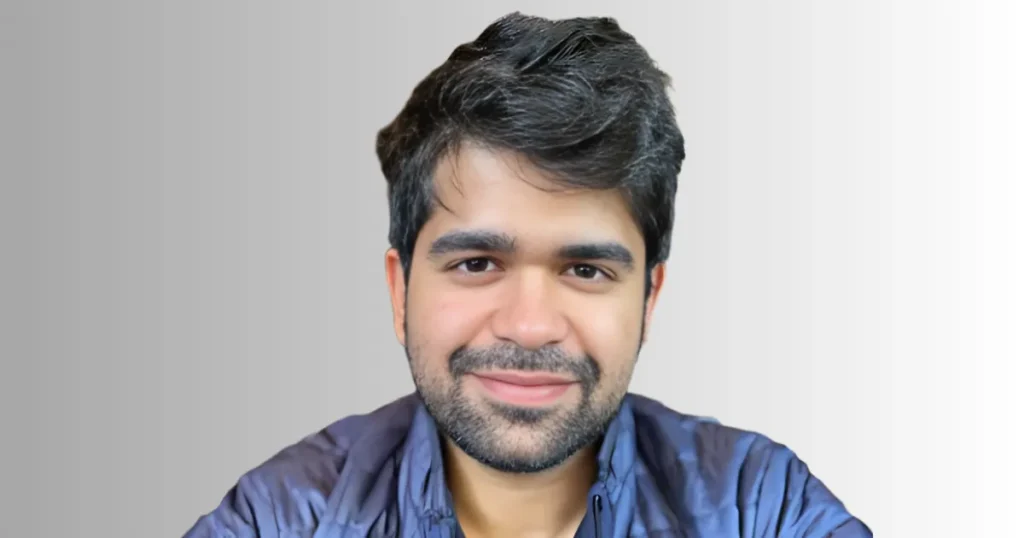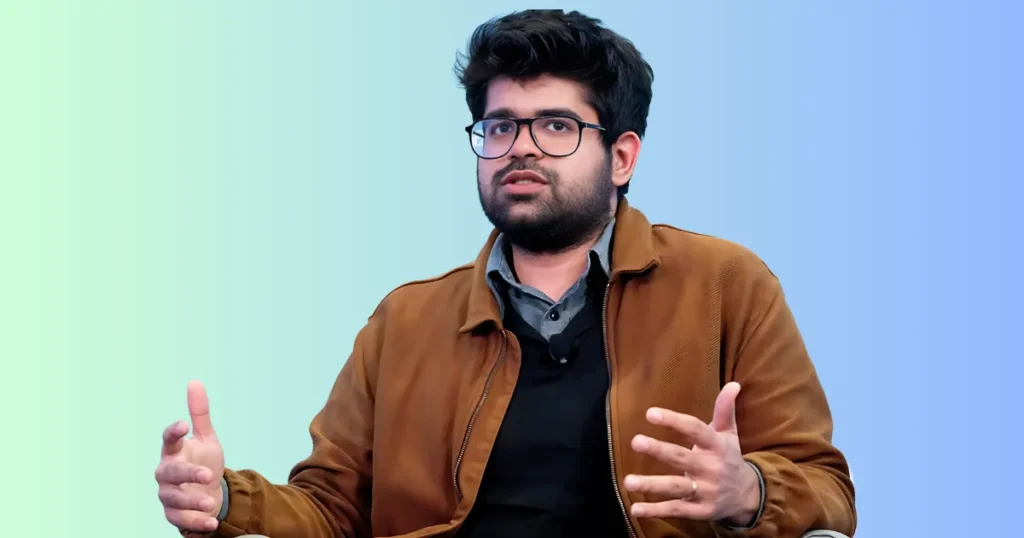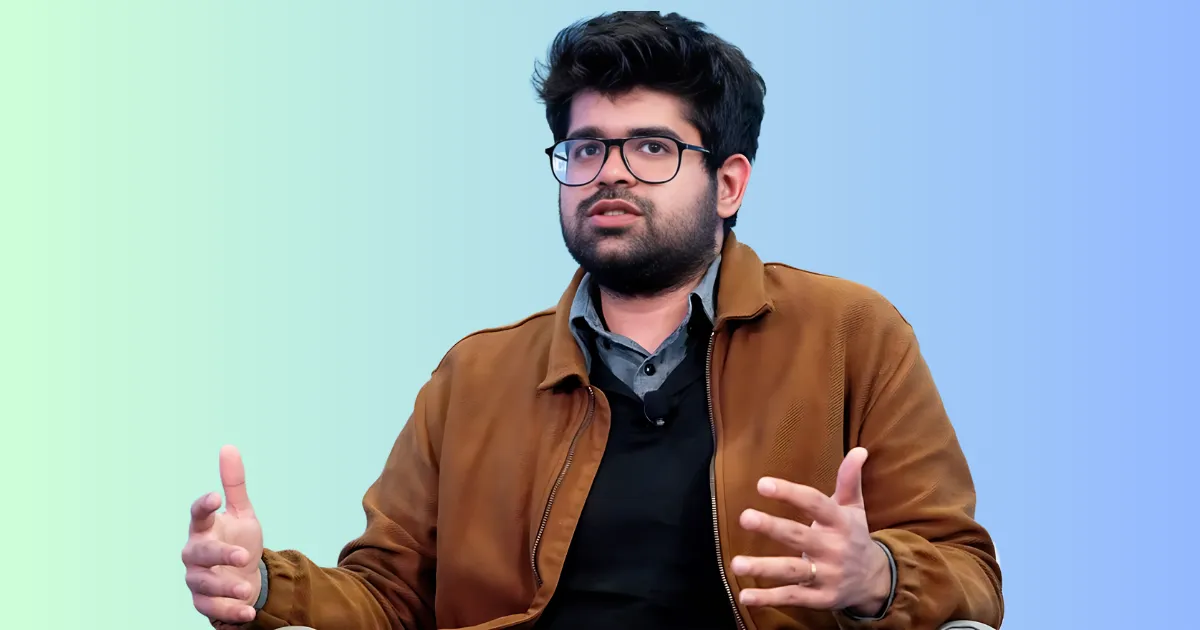Aravind Srinivas on Surviving the AI Copycat Era Build Relentlessly
Perplexity CEO Aravind Srinivas urges young entrepreneurs to embrace the inevitability of big tech copying their innovations, emphasizing relentless building and identity formation as key defenses.
San Francisco, California – July 17, 2025 – In an increasingly competitive artificial intelligence landscape, young entrepreneurs with groundbreaking ideas face a daunting challenge: the near-certainty that billion-dollar companies will attempt to replicate their innovations.
This stark reality was recently highlighted by Perplexity CEO Aravind Srinivas during his address at Y Combinator’s AI Startup School, held here in San Francisco. Srinivas, a prominent Indian computer scientist and entrepreneur, candidly advised the audience of
undergraduate, graduate, and PhD students that larger corporations possess the resources and motivation to “copy anything that’s good,” urging them not to let this pressure of potential plagiarism stifle their growth but instead to “use it as fuel” and “work incredibly hard.”
The core message from Aravind Srinivas resonates deeply within the startup community, where fear of being overshadowed by industry giants often paralyzes nascent ventures. He emphasized that if a company develops a product with the potential to generate revenue on the scale of hundreds of millions or even billions of dollars, then the assumption should always be that a larger, established entity will inevitably try to copy it.
This perspective, born from his own experiences in building Perplexity, serves as a crucial piece of advice for aspiring innovators navigating the fast-paced world of AI.

The Inevitable Copycat: Why Big Tech Follows
Aravind Srinivas elaborated on the underlying reasons why massive technology companies engage in what often appears to be “copycat” behavior. These industry titans, having raised and invested tens of billions or even close to $50 billion in capital expenditure, are under immense pressure to justify those expenditures and continuously seek new avenues for generating revenue.
Consequently, they meticulously monitor the market for any innovative and successful product or feature, regardless of its origin, and are quick to integrate similar functionalities into their own ecosystems. Srinivas asserted that this is an unshakeable reality for startups, stating, “They will copy anything that’s good. I believe that you must accept and live with that fear.”
Perplexity, under the leadership of Aravind Srinivas, has firsthand experience with this phenomenon. In December 2022, the company launched its pioneering answer engine, which notably incorporated real-time web crawling capabilities, a significant advancement at the time.
However, it wasn’t long before major rivals, including Google’s Gemini, OpenAI’s ChatGPT, and Anthropic’s Claude, subsequently adopted similar features, validating Srinivas’s assertion about the pervasive nature of imitation in the tech industry. This swift replication underscores the competitive intensity and the constant need for startups to maintain agility and innovation.
Building Your Moat: Speed and Identity
Despite the daunting prospect of larger companies mimicking their successful features, Aravind Srinivas offered a powerful counter-strategy for young entrepreneurs: establish your “moat” by moving fast and cultivating a unique identity around your product or service. He believes that genuine user connection and loyalty ultimately serve as the strongest defense against replication.
“Realize that your moat comes from moving fast and building your own identity around what you’re doing because users at the end care,” he advised the hopeful founders. This philosophy emphasizes that while features can be copied, the core value proposition, brand perception, and the deep relationship a company builds with its user base are far more challenging to imitate.
The ongoing “browser wars” provide a contemporary illustration of this dynamic. Perplexity recently launched its Comet browser on July 9, positioning it as an AI-powered alternative designed to revolutionize web interaction. Remarkably, later on the very same day, Reuters reported that OpenAI was reportedly developing a similar web browser intended to challenge Google Chrome, although OpenAI has yet to make a formal announcement.
Jesse Dwyer, Perplexity’s head of communications, echoed Srinivas’s sentiment, telling Business Insider that larger companies will not only copy but also “do everything they can to drown your voice.” Dwyer poignantly added, “Browser wars should be won by users, and if users lose Browser War III, it will be from a familiar playbook: monopolistic behavior by an ‘everything company’ forcing its product on the market. In this sense, whatever OpenAI builds as a browser will be no different than Google’s.” This highlights the critical importance of user-centric design and a clear value proposition for startups.

Expert Analysis and Public Sentiment
Industry experts largely concur with Aravind Srinivas‘s assessment, recognizing the inherent challenges faced by startups in a landscape dominated by tech giants. Dr. Kavita Rao, a leading venture capitalist specializing in AI investments, commented from her office in Palo Alto, “Srinivas’s advice is not just practical; it’s a stark reality check for anyone entering the AI space.
The capital and talent available to the likes of Google and OpenAI mean they can rapidly deploy resources to catch up. The true differentiator for startups like Perplexity lies in their ability to iterate faster, foster an intensely loyal community, and deliver a user experience that the larger, more bureaucratic organizations struggle to replicate.” She further emphasized that early adopters of innovative products often form a strong attachment to the original, which can provide a crucial buffer against competitive onslaughts.
Read more: Perplexity AI Careers A Gateway To Innovation In 2025
The sentiment among aspiring entrepreneurs and the wider tech community largely aligns with Srinivas’s proactive stance. Many express admiration for his candor and the strategic insights he offers. “It’s refreshing to hear someone like Aravind Srinivas speak so openly about the challenges,” remarked Arjun Patel, a computer science student attending the Y Combinator event. “It motivates me to think beyond just the idea and focus on how to execute it with unparalleled speed and build a truly unique product that users will genuinely love, even if the features get copied.”
This reflects a growing understanding that sustainable success in the tech world requires more than just a brilliant concept; it demands relentless execution and a deep connection with the end-user.
The Path Forward for Young Innovators
For young entrepreneurs, the message from Aravind Srinivas is clear and actionable: do not be deterred by the prospect of larger companies copying your successes. Instead, view it as an endorsement of your idea’s potential. The competitive landscape necessitates constant innovation, exceptional speed in execution, and an unwavering focus on building a distinct brand identity that resonates with users.
The battle is not just about features but about fostering a deeper, more meaningful connection with the audience.
Ultimately, the future of AI and related technologies will be shaped by both established giants and nimble startups. The wisdom shared by Aravind Srinivas at Y Combinator’s AI Startup School serves as a vital guide for the next generation of innovators, reminding them that while imitation may be the sincerest form of flattery, relentless building and user-centricity are the keys to enduring success.
Frequently Asked Questions (FAQs)
Who is Aravind Srinivas?
Aravind Srinivas is the CEO and co-founder of Perplexity, an artificial intelligence company known for its conversational answer engine with real-time web crawling capabilities. He is an Indian computer scientist and entrepreneur.
What was Aravind Srinivas’s main message at Y Combinator’s AI Startup School?
Aravind Srinivas advised young entrepreneurs to expect that billion-dollar companies will try to copy their successful ideas. His main message was to use this potential copying as “fuel” to work incredibly hard, move fast, and build a unique identity around their product.
Why do big tech companies copy startup ideas, according to Srinivas?
According to Aravind Srinivas, big tech companies often copy good ideas because they need to justify massive capital expenditures and are constantly searching for new revenue streams. They will integrate successful features from smaller players into their own offerings.
What is Perplexity’s Comet browser, and when was it launched?
Perplexity’s Comet browser is an AI-powered web browser designed to offer an integrated AI experience for users. It was launched on July 9, 2025.
How does Aravind Srinivas suggest startups can prevent their ideas from being completely overshadowed by larger companies?
Aravind Srinivas suggests that startups should prepare for the inevitable copying by moving fast, continuously building, and creating a strong, unique identity that users connect with. This focus on speed and user loyalty forms their “moat” against competition.
Has Perplexity itself experienced its features being copied by larger companies?
Yes, Aravind Srinivas shared that Perplexity launched its answer engine with real-time web crawling in December 2022, and this feature was soon adopted by competitors like Google’s Gemini, ChatGPT, and Anthropic’s Claude.

